Remembrance Sunday: Scots observe two-minute silence from doorsteps
- Published
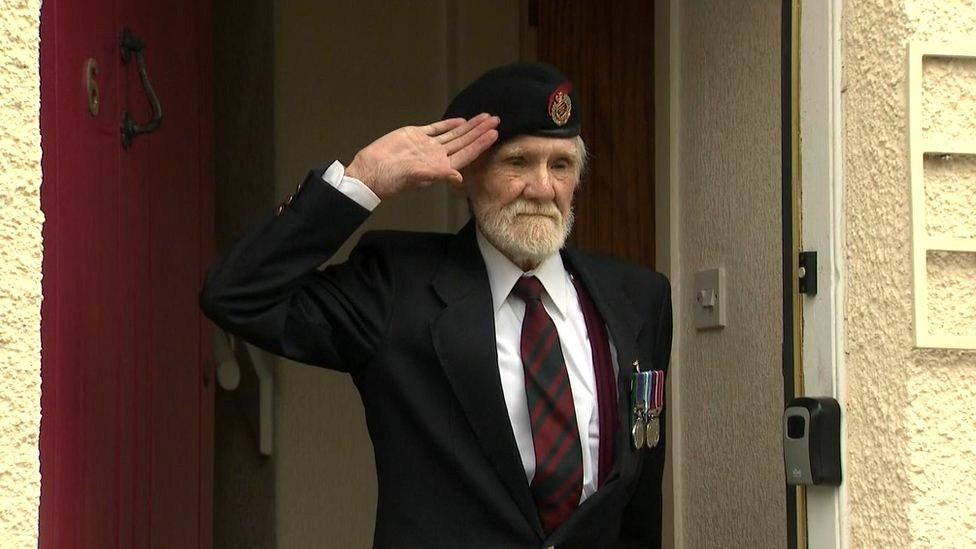
Ex-servicemen were among those who paid tribute to the fallen from their own doorstep
Thousands of people have observed a two-minute silence on their doorsteps after Remembrance Sunday events across Scotland were cancelled.
Traditional community remembrance parades were called off due to coronavirus restrictions.
A scaled-back national service of remembrance was held at the Scottish National War Memorial in Edinburgh Castle.
Nicola Sturgeon was among those who laid wreaths.
All those present at the short service wore face masks and were physically distanced from each other.
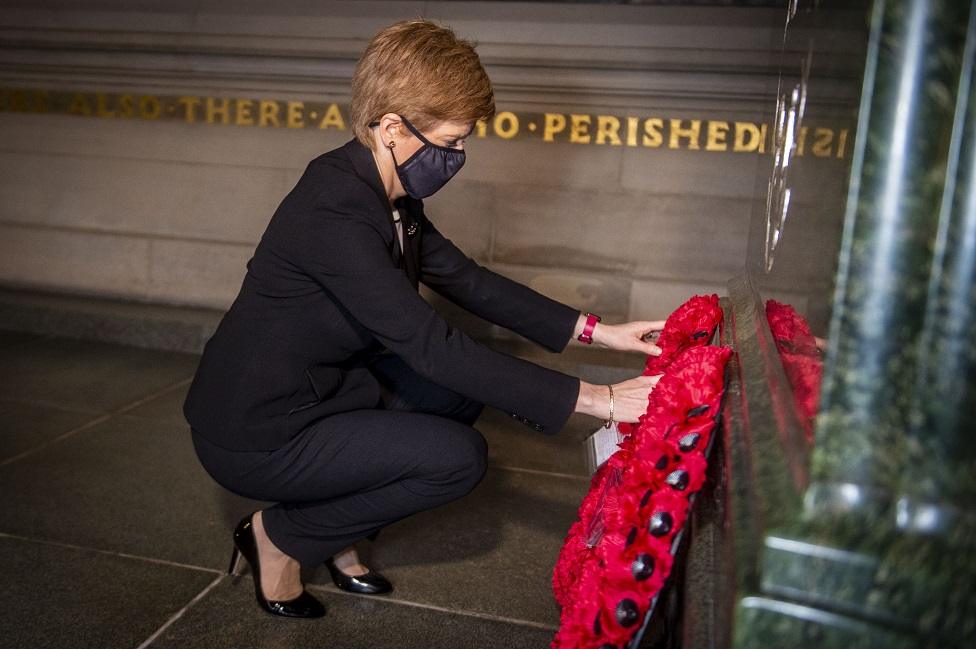
The first minister laid a wreath at the war memorial
"Remembrance Sunday is an opportunity for all of us to take time to commemorate those who made the ultimate sacrifice for their country," Ms Sturgeon said before the ceremony.
"It allows us a chance to honour the memory of those who gave their lives in the two world wars and other conflicts while also paying tribute to our veterans and those who continue to serve today.
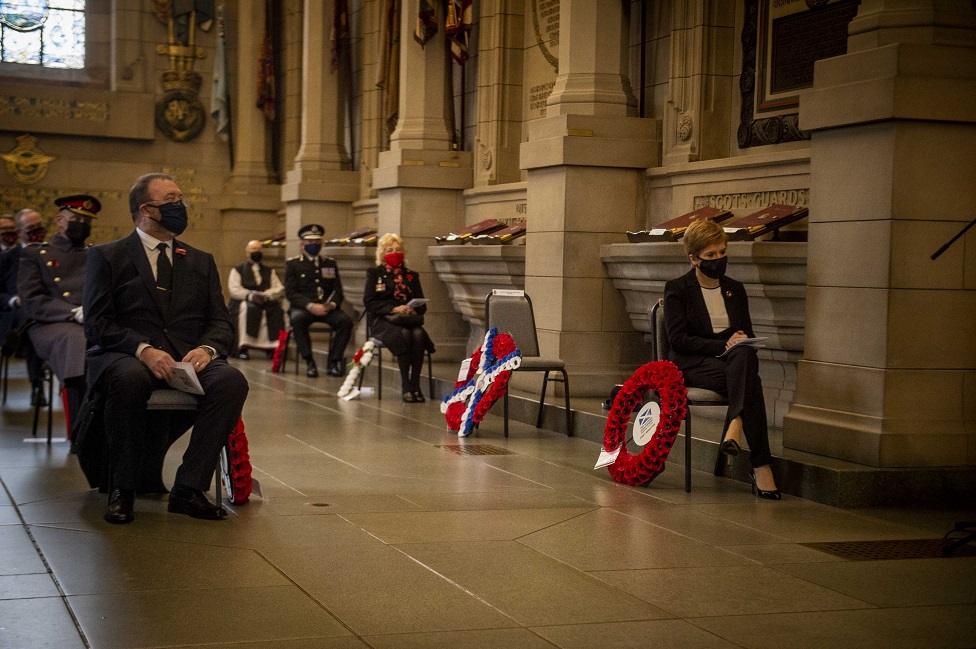
Nicola Sturgeon was among those taking part in the national service of remembrance
"Commemorations this year have had to be marked differently because of the impact of the coronavirus pandemic and we understand it will be disappointing to many people that national services will not be open to the public.
"I am privileged to be able to lay a wreath today on behalf of the people of Scotland."
In London, members of the Royal Family, the government and the armed forces marked Remembrance Sunday at the Cenotaph.
Smaller remembrance services, where numbers were strictly limited, took place in churches across Scotland.
Restrictions on outdoor gatherings meant most traditional parades and wreath-laying ceremonies at local war memorials were cancelled.
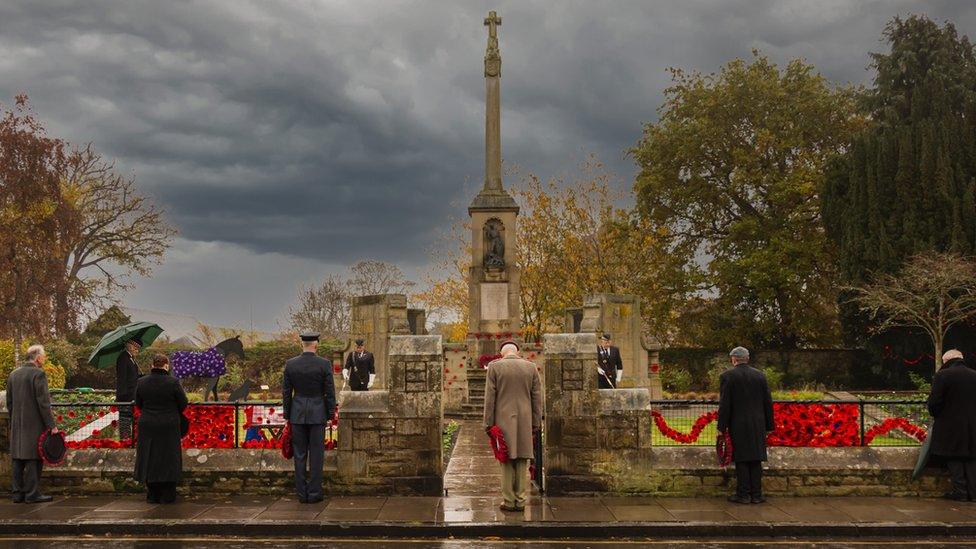
A small ceremony took place at the war memorial in Kelso
Veterans' charity Legion Scotland had asked people to fall silent at 11:00 at their doorsteps.
Sir Alistair Irwin, national president of Royal British Legion Scotland and Poppyscotland, saidd: "We have all been greatly affected by the cancellation of remembrance events around the country and this has been a great disappointment to so many because the act of remembrance is so very important.
"However, it has been heart-warming to see how we have all united in spirit, ensuring that remembrance is observed and that the memories of those who have made the ultimate sacrifice live on."
Whitson Johnson welcomes plans for a doorstep silence on Remembrance Sunday
People in the UK were first asked to observe a two minute silence to remember the war dead on 11 November 1919 - a year after the end of World War One.
Remembrance Sunday became the main focus of commemoration since the conclusion of World War Two in 1945.
The acts of remembrance have continued every year until 2020 but many people are determined to continue the tradition and ensure the victims of conflict are not forgotten.
Ahead of the national memorial service, actress Valerie Edmond stood on the ramparts of Edinburgh Castle at dawn to read out the names of casualties from World War Two.
It marked the 75th anniversary of the end of the 1939-45 war.
Ms Edmond told BBC Scotland: "The restrictions that we all palpably feel and are all part of our lives just now will one day be lifted. For these people, the only thing that was lifted for them was their coffins."
Meanwhile a community in South Ayrshire has put together a "virtual remembrance event" - a a film of the stories of local people affected by the wars, external.
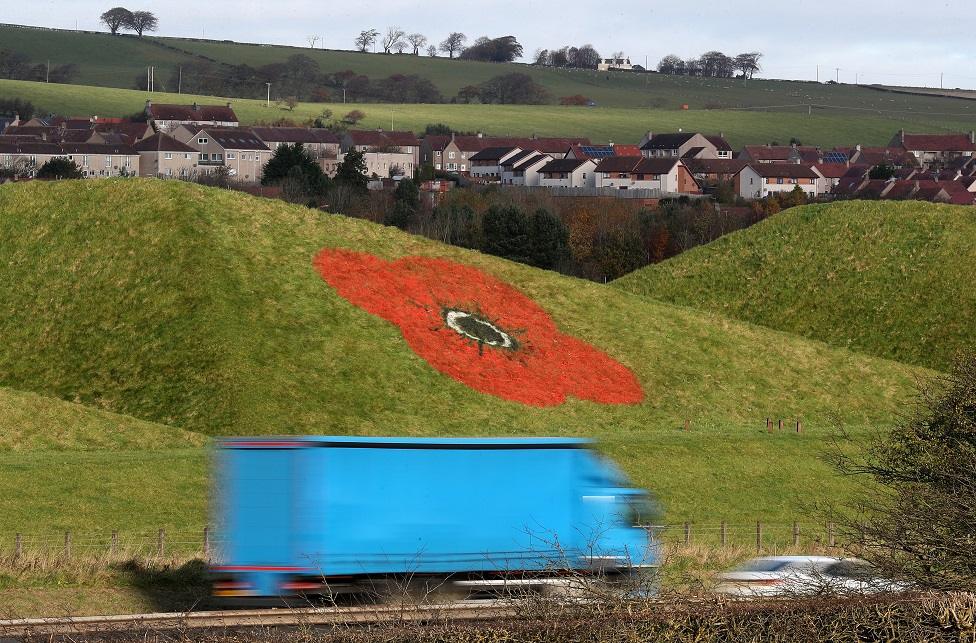
Giant poppies have been painted on to the side of the Bathgate pyramids next to the M8
The service at the National War Memorial was led by the Moderator of the Church of Scotland the Right Rev Dr Martin Fair.
Nicola Sturgeon and MP David Duguid, the parliamentary under-secretary of state for Scotland, were among those giving readings.
Scottish Secretary Alister Jack said Remembrance Sunday would "feel very different" but people should not let the restrictions stand in the way of them paying their respects.
"I know people in Scotland, as they will across the UK, will still take the time to think, to reflect, and to give private thanks to all those who have served and fallen," he said.
"We will, individually, take a moment to recognise the sacrifice of all those who have given their lives protecting our country.
"Even in these difficult and unprecedented times, we will remember them."